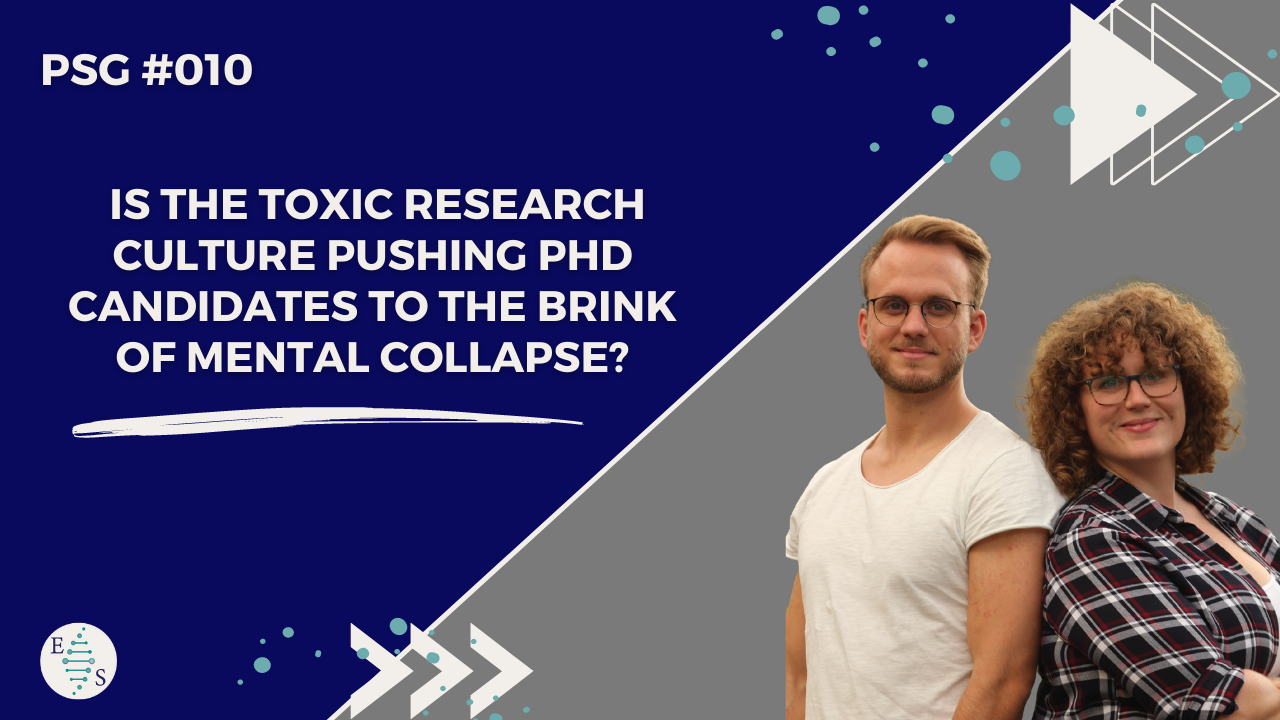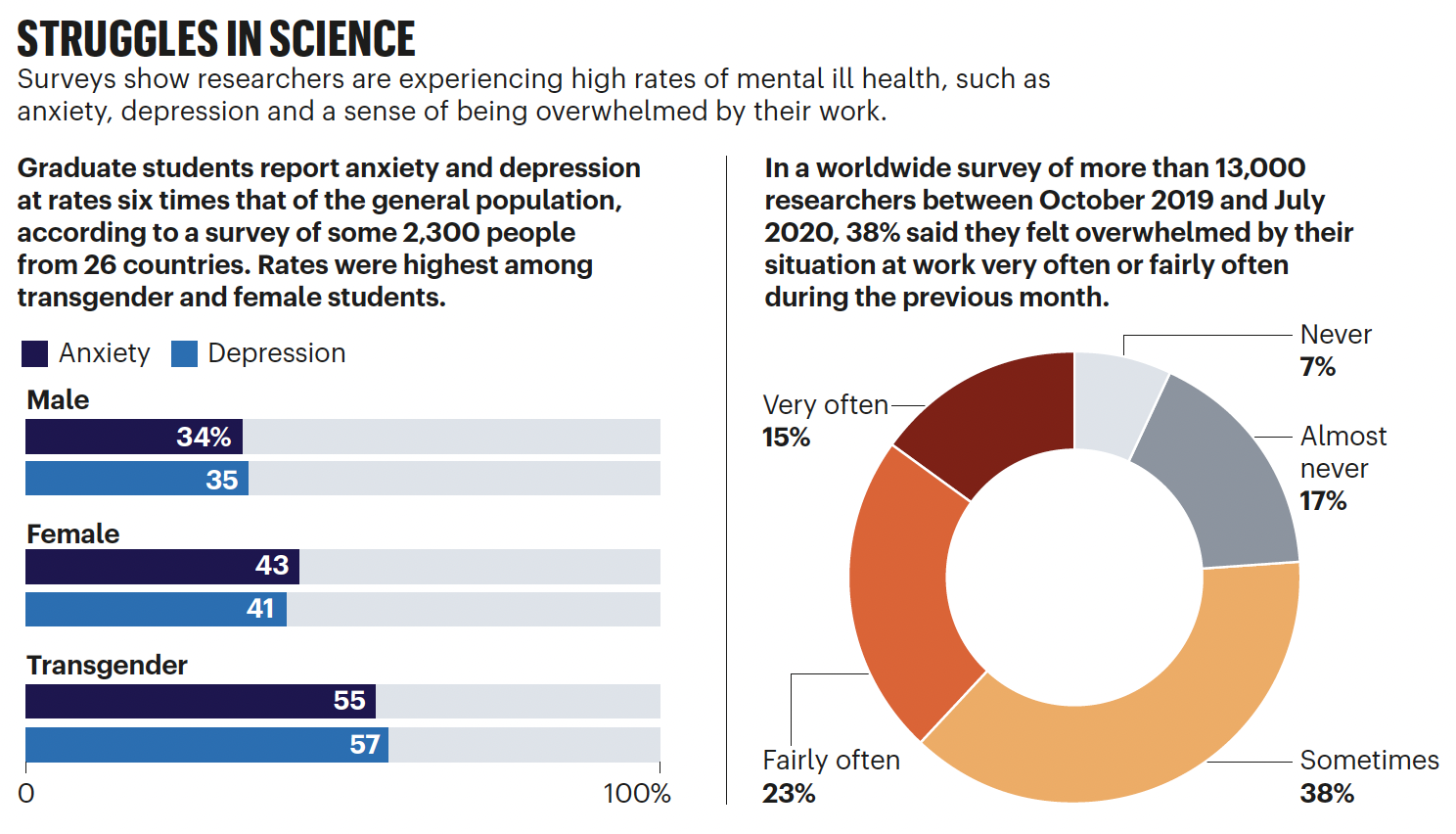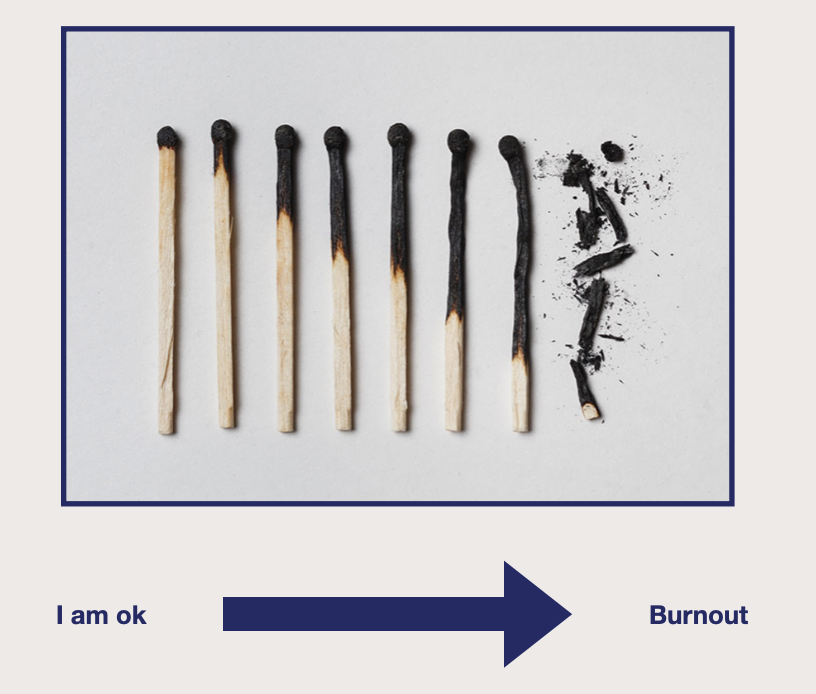
PSG #010: Is the Toxic Research Culture Pushing PhD Candidates to the Brink of Mental Collapse?
Jul 02, 2023Introduction: What is the Toxic Research Culture and How Does it Affect PhD Candidates?
The toxic research culture is an ongoing issue in the academic world, and it has been linked to the deterioration of the mental health of PhD candidates.
The toxic research culture refers to the unhealthy and competitive environment that is prevalent in most research institutions, where researchers are encouraged to work long hours, sacrifice their personal life, and prioritize research over their well-being.
PhD candidates are particularly vulnerable to this culture, as they are often required to:
- work long hours without pay
- deal with the pressure of meeting deadlines
- and compete with their peers for recognition.
The effects of this toxic culture are devastating, with many PhD candidates experiencing:
- burnout
- anxiety
- depression
- and even suicidal thoughts.
As shown in this survey published in Nature:

https://www.nature.com/articles/d41586-023-01708-4
It is high time for universities and research institutions to recognize the detrimental effects of the toxic research culture on PhD candidates and take steps to mitigate its impact on their mental health. It is essential to create a supportive and inclusive environment for PhD candidates that values their wellbeing as much as their research output.
The Mental Toll of a Toxic Research Culture on PhD Candidates
The pressure to succeed in academia has never been higher, and it's taking a toll on PhD candidates.
The constant demand for:
- productivity,
- the competitive nature of the field,
- and the lack of work-life balance
are all contributing factors to a toxic research culture that is pushing PhD candidates to the brink of mental collapse.
The impact of stress on these individuals cannot be ignored.
Research has shown that chronic stress can lead to a multitude of mental and physical health problems, including anxiety, depression, and burnout.
It's time for a change in the way we approach research and academia. Universities and institutions need to prioritize the well-being of their students, providing them with the necessary resources to manage stress and maintain a healthy work-life balance.
Additionally, academic culture needs to shift away from the "publish or perish" mentality and towards a more collaborative and supportive approach.
PhD candidates are the future of research, and their mental health and well-being should not be sacrificed in the pursuit of knowledge.
Strategies for Mitigating the Effects of a Toxic Research Culture
It's time for universities and research institutions to take action and implement strategies that can mitigate the effects of a toxic research culture.
To start, institutions should prioritize mental health by providing resources and support for PhD candidates.
This can include:
- access to counseling services,
- mental health days,
- and regular check-ins with supervisors to ensure they are not overworking themselves.
- Also provide coaching and outside help with different topics like mindset, time and stress management.
- Institutions should also encourage a healthy work-life balance by setting reasonable expectations for work hours and deadlines.
- Additionally, creating a supportive and inclusive environment where individuals feel comfortable speaking up about their struggles and seeking help can go a long way in reducing the stigma surrounding mental health.
Finally, it's important to hold supervisors and advisors accountable for their behavior and ensure they are not contributing to a toxic research culture.
By implementing these strategies, we can create a healthier and more sustainable research environment that benefits everyone involved.
What you can do to help yourself
As we cannot wait until this is implemented by universities and research institutes, here are some tips to help you improve your mental health:
- realize your (mental) health is more important than your job (by doing this you will get better at your job!)
- make sure to take enough breaks and time for relaxation and recharging
- take holidays!
- prioritize yourself and do regular check-ins with yourself (e.g. Matches measure: A visual scale of job burnout.

(picture from: http://thedo.osteopathic.org/wp-content/uploads/2019/09/burnout-matches.jpg)
- don’t be afraid to ask for help → most universities and institutes offer counselling ( sometimes the information is quite hidden, maybe ask coordinator)
- learn to say no and set boundaries
- learn proper and balanced time management
- work on your growth mindset to gain resilience and face challenges well-equipped
- find stress management tools working for you
In conclusion, it is evident that the toxic research culture is pushing PhD candidates to the brink of mental collapse. However, we cannot continue to turn a blind eye to this issue.
It is time for universities and research institutions to take responsibility and create a safe and supportive environment for their PhD candidates.
We need to prioritize mental health and well-being just as much as academic excellence.
As individuals, we can also play a role in advocating for change and supporting our peers through their struggles.
Let us work together to protect the mental health of our future researchers and ensure that they can pursue their passions without sacrificing their well-being.
See you next week!
PhD survival guide is a free newsletter. Please support by sharing with those who may benefit from this post:
https://courses.elantoscience.com/blog/
If you want more help:
We're excited to share the PhD Survival System with you because we know how tough it can be to get through a PhD program. We have developed a holistic system combining all the necessary areas to obtain optimal results.
We start with the foundation, your mindset and on top of that we building two pillars with time management and stress management.
More about the PhD Survival System here:
Stay connected!
Join our newsletter to receive the latest posts!
Don't worry, your information will not be shared.
We hate SPAM. We will never sell your information, for any reason.